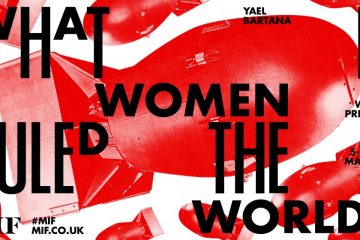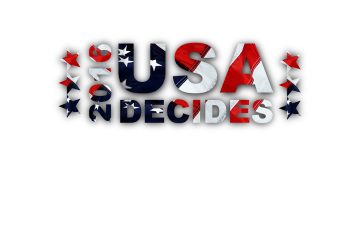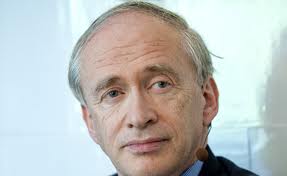
Towards the Eruvian Age: Public Space in a Pandemic
In 2013, as two Fellows at New York University, we embarked on an “eruv tour” of Manhattan. Created through almost invisible strings attached to poles that envelope part of the city, this imaginary enclosure serves to delineate a religious space in which it is permissible to carry out the Jewish Sabbath. Today, we contemplate this almost invisible boundary running down Sixth Avenue with new appreciation of the insights it may yet bring to our current predicament as a pandemic of unprecedented proportions forces us to reinvent our common space, the boundaries which define it and the ways we can and should interact within it. The eruv was introduced in Roman Palestine around 50AD for a Jewish community where many of …
Can #BernieOrBust Be Justified? On the Ethics of Voting
The #BernieOrBust slogan was widely adopted in the 2016 Presidential Elections by ardent supporters of Senator Bernie Sanders. These devotees insisted that they would not vote for any candidate (namely Hillary Clinton, the eventual Democratic Party nominee) in the eventual general election showdown with Trump. Four years later, the slogan has resurfaced as a credible threat directed toward what many perceive to be a recalcitrant Democratic Party establishment. In what follows, I do not claim that “#BernieOrBusters” are morally justified (all things considered), but merely offer a possible defence for why some #BernieOrBust advocates are behaving in a rationally justified manner. I grant two premises amenable to most critics of #BernieOrBusters: first, Trump is a highly problematic candidate in his actions and dispositions; second, whilst not …
Why did Plato conclude the “Republic” with the Myth of Er?
In many of the standard narratives that political theory tells about its history and origins, Plato’s Republic stands out as a kind of foundation text of the discipline itself. As Plato’s most celebrated work of political theory, it is usually the first text taught in introductory surveys of the history of political thought. It is safe to say almost all political theorists – if not most political scientists – have had to study it over the course of their education and training. Yet despite its canonical status and familiarity, the Republic is not always a straightforward text. Plato was, on top of being a philosopher, a master prose stylist who paid great attention to the literary construction of his dialogues. Nowhere in the Republic is this …

What is the political, and why should we care?
When political theorists debate the nature of the ‘political’, it strikes the ear as strange. Conventionally, we understand politics in a general sense to mean the practice of power relations, or the relationships between people and governing institutions, or the discursive distribution of power and resources, and although there are often disagreements about the precise definition, there is sufficient overlap that academics understand one another when they talk about politics as a subject of inquiry. However, when talking about ‘the political’, as it is so abstractly articulated in certain areas of the literature, there seems to be far more debate, with supposedly more at stake. ‘The political’ appears to denote some sort of primordial state of things, or an ingredient …

If women ruled the world, would it be so different? From differentialism to a focus on ideology
A performance featured during the summer at the Manchester International Festival attempted to tackle the following timeless question: if women ruled the world, would they confront pressing social and political issues – such as climate change, military escalation and mass migration – in qualitatively different ways? The notion that the world would look different under female leadership assumes a “differentialist” approach to gender issues. This article, on the one hand, questions the underlying assumptions of that widespread belief, and, on the other hand, sketches out an alternative approach to progressive change in general and, more specifically, for women. Why we should be sceptical about differentialism in debates on gender A first and still very common version of differentialism is the …

TRUMP’S IMPACT ON INTERNATIONAL RELATIONS
It is slowly dawning on us all that Donald Trump was right when he said that the American election day ‘will be Brexit times 10’. In my experience, 4,000 miles across the Atlantic, people looked ten times more shocked when they saw Trump give a victory speech than when it became clear that their country had decided to leave the European Union. Much has been written about Trump’s hateful rhetoric, which has offended 282 people and places on twitter alone, and the possible ramifications of his breaking long-established domestic norms. But it is the global implications of a Trump presidency that worries people across the globe. If he makes true on his campaign promises, we would see a large-scale withdrawal …

Civic Republicanism in Spain: A North Star for hard times
The key principle of Republicanism is to minimise domination wherever it is found. The Zapatero governments in Spain, for example, showed how this idea can shape the policies of nation states. Is it possible to extend Republican principles to the global arena? I’ll start with what everybody knows. We live in hard times. There is much more suffering in Europe right now than just five years ago – much more domination too. Arguably, a sort of global redistribution is benefiting ‘developing’ countries to the detriment of the ‘developed’ world. But Western democracies are doing badly, and their prospects are not promising. [This post is part of the Democratic Wealth series, hosted by Politics in Spires in partnership with Our Kingdom.]

What is Political Thinking?: A Q&A with Professor Michael Freeden
Recently retired from Mansfield College, Oxford, Professor Michael Freeden, a political theorist is best known for his work on political ideologies, a subject often maligned as an inferior cousin of political philosophy and political theory. Marx did no favours for the term, of course, and End of Ideology thinkers like Daniel Bell and Seymour Martin Lipset defined ideologies so narrowly and pejoratively that few are inclined to attach their thinking to the moniker – or believe it is worth studying. But scholars interested in the interaction between ideologies and language, like Freeden, and also post-Marxist scholars like Ernesto Laclau and Chantal Mouffe, have resurrected the study – and the word. In his landmark book, Ideologies and Political Theory, Freeden argues that …









